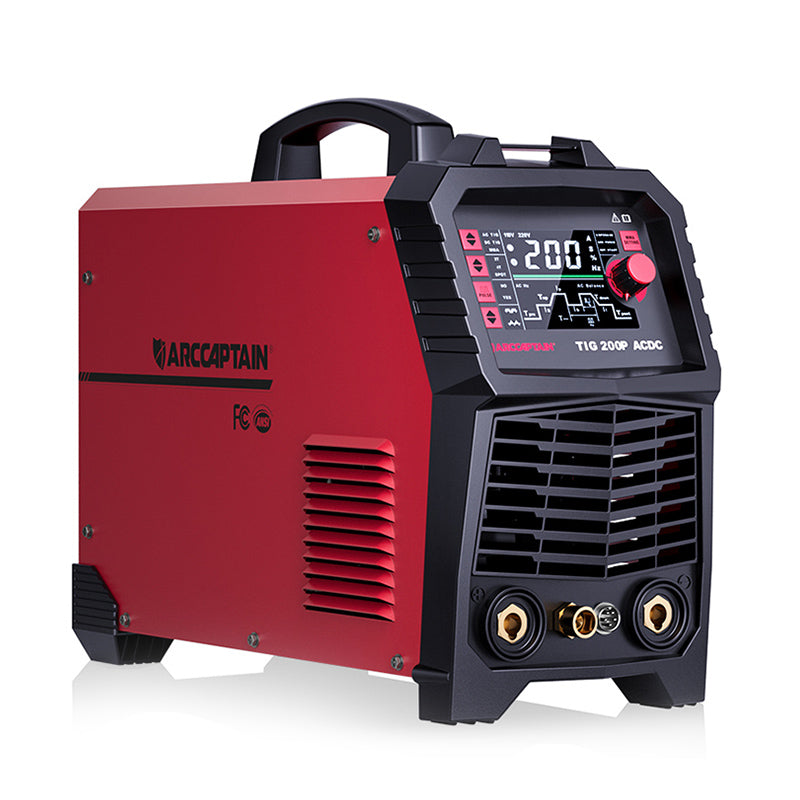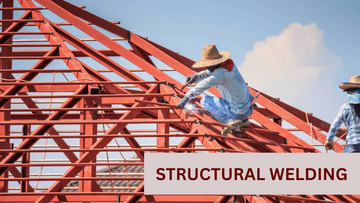
Structural welding is the process of joining metal components to create load-bearing structures such as bridges, buildings, towers, and pipelines.
Unlike non-structural welding, which is used for lighter or decorative purposes, structural welding directly impacts the strength, safety, and durability of a project.
So, what does structural welding mean? It means using welding processes to assemble and secure the framework of structures that must withstand heavy loads and environmental stress.
Structural welders are the skilled professionals who perform this work, ensuring that every weld meets strict safety codes and engineering standards.
If you’re curious about how to become a structural welder, what skills you’ll need, and how much you can earn, this guide has you covered.
Keep reading to discover everything you need to know about structural welding and how it can become a rewarding career.
Structural Welding vs. Non-Structural Welding
A key distinction in the welding industry is between structural and non-structural welding:
- Structural welding: Creates or repairs critical frameworks like beams, columns, and pipelines. These welds are load-bearing and must comply with codes such as AWS D1.1.
- Non-structural welding: Used for lighter, non-load-bearing applications such as sheet metal, furniture, or decorative railings.
👉 Want to know more about welding processes? Don’t forget to check out this guide comparing MIG, TIG, stick, and flux-core welding to see how each method stacks up.
Skills and Qualifications Needed for Structural Welding
To succeed in structural welding, you need a mix of technical, physical, and personal skills:
- Technical skills: Proficiency in MIG, TIG, stick, and flux-cored welding; ability to read blueprints and welding symbols; knowledge of metallurgy.
- Physical abilities: Strength, stamina, and manual dexterity to work in demanding environments.
- Personal qualities: Attention to detail, problem-solving ability, and strong teamwork and communication skills.
Duties and Responsibilities in Structural Welding
Structural welding involves a variety of tasks, including:
- Reading and interpreting blueprints and engineering drawings
- Preparing and cutting metal components to specifications
- Setting up and operating welding machines
- Performing welds that meet code and inspection standards
- Inspecting finished welds for quality and safety
- Collaborating with engineers, fabricators, and construction teams
- Following OSHA and AWS safety guidelines
In short, this is the process of structural welding: preparing materials, selecting the right process, performing the weld, and ensuring it meets strength and safety standards.
Types of Welding Used in Structural Welding
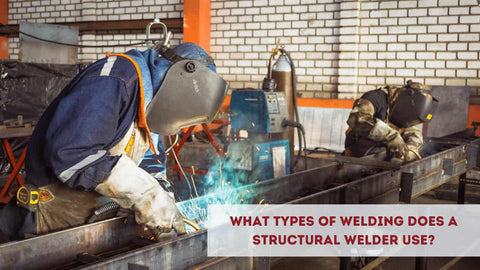
Structural welding isn’t a one-size-fits-all process. Different projects, materials, and environments call for different welding techniques. Here are the most common types used in structural welding and why they matter:
Shielded Metal Arc Welding (SMAW / Stick Welding)
This is one of the oldest and most widely used welding methods in construction. Stick welding is highly portable, works well outdoors, and can handle thicker steel. That’s why it’s a go-to choice for building bridges, pipelines, and large structural frameworks.
Gas Metal Arc Welding (GMAW / MIG Welding)
MIG welding uses a continuous wire feed and shielding gas, making it faster and easier to learn than stick welding.
It’s often used in fabrication shops where welders assemble beams, frames, and components before they’re installed on-site. MIG produces clean welds with less spatter, which saves time on cleanup.
Flux-Cored Arc Welding (FCAW)
Flux-cored welding is similar to MIG but uses a tubular wire filled with flux. It’s especially useful for thicker metals and outdoor projects because it doesn’t always require external shielding gas.
Structural welders rely on FCAW for heavy-duty jobs like shipbuilding, industrial plants, and high-rise buildings.
👉 Curious about how FCAW works? Don’t forget to browse this complete FCAW welding guide to learn more.
Gas Tungsten Arc Welding (GTAW / TIG Welding)
TIG welding uses a tungsten electrode and produces precise, high-quality welds. While not as fast as MIG or stick welding, it’s perfect for thinner metals or projects that demand a clean, professional finish.
Structural welders may use TIG when working on stainless steel components or aerospace structures.
Resistance Welding
This process uses heat generated from electrical resistance to join metals. It’s not common in field structural welding but is used in manufacturing and prefabrication shops, especially for spot-welding sheet metal parts.
👉 Many people ask, what are the 4 types of welding? The most common ones are MIG, TIG, stick, and flux-core welding, and all four play an important role in structural welding.
Best Welding Process for Structural Steel
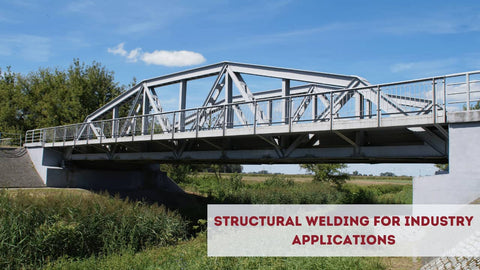
When it comes to structural steel, the most common and reliable processes are:
- SMAW (Stick Welding) – durable, portable, and effective in outdoor conditions
- FCAW (Flux-Cored Welding) – efficient for thicker steel and heavy-duty applications
MIG and TIG welding are also used but are more common in controlled shop environments.
👉 Want to see how flux-core is used in tougher jobs? Discover dual shield welding and how it combines strength with efficiency.
So, what type of welding is used for structural welding? Stick and flux-core welding are the top choices for most large-scale projects.
Structural Welding Certifications
Certifications are essential in structural welding because they prove a welder’s ability to meet safety and code requirements.
- AWS D1.1 Structural Steel Certification – the gold standard for structural welders
- Pipe vs. Structural certifications – pipe welding (ASME Section IX) differs from structural steel qualifications
- Specialized certifications – aerospace, nuclear, or underwater welding for advanced career paths
Holding certifications not only improves job opportunities but also increases earning potential.
How to Become a Structural Welder
Starting a career in structural welding usually involves these steps:
- Earn a high school diploma or GED
- Complete a welding program at a trade school or community college
- Gain hands-on experience through apprenticeships or entry-level jobs
- Obtain AWS certification(s) such as D1.1
- Continue training to stay up-to-date with new welding technologies
👉 Thinking about career paths beyond welding? Check out what a welding engineer does and see how welders can advance into engineering roles.
So, is structural welding a good career? Absolutely. It offers stable pay, strong demand, and opportunities to specialize in high-paying fields like aerospace or offshore welding.
Structural Welding Salary and Career Outlook
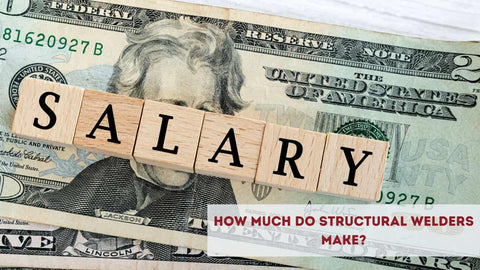
The average salary for structural welding is around $48,000 to $68,000 per year, depending on location, industry, and experience.
- Entry-level welders: $35,000–$42,000
- Certified/experienced welders: $70,000+
- Specialized roles (aerospace, offshore, nuclear, underwater): $90,000–$120,000+
With infrastructure projects expanding and a shortage of skilled tradespeople, structural welding offers strong job security and growth potential.
Just note that the highest salaries ($100k+) are typically earned by welders in specialized niches such as underwater or nuclear welding.
Structural Welding in Industry Applications
Structural welding is critical across multiple sectors:
- Construction & Infrastructure – bridges, skyscrapers, stadiums, and transportation systems
- Manufacturing & Aerospace – heavy machinery, aircraft frames, and precision components
- Oil, Gas & Energy – pipelines, refineries, offshore rigs, and renewable energy structures
Conclusion
Structural welding is more than just joining metal—it’s about building the backbone of modern society. From bridges and skyscrapers to pipelines and aircraft, structural welding ensures safety, durability, and performance.
For those who enjoy working with their hands and want a career with stability, growth, and strong earning potential, structural welding is an excellent choice.
For more helpful guides and tips about different types of welding, visit Arccaptain.
And don’t forget to shop high-quality welding tools, safety gear, and welding machines at Arccaptain to set yourself up for success.
Check Related Products
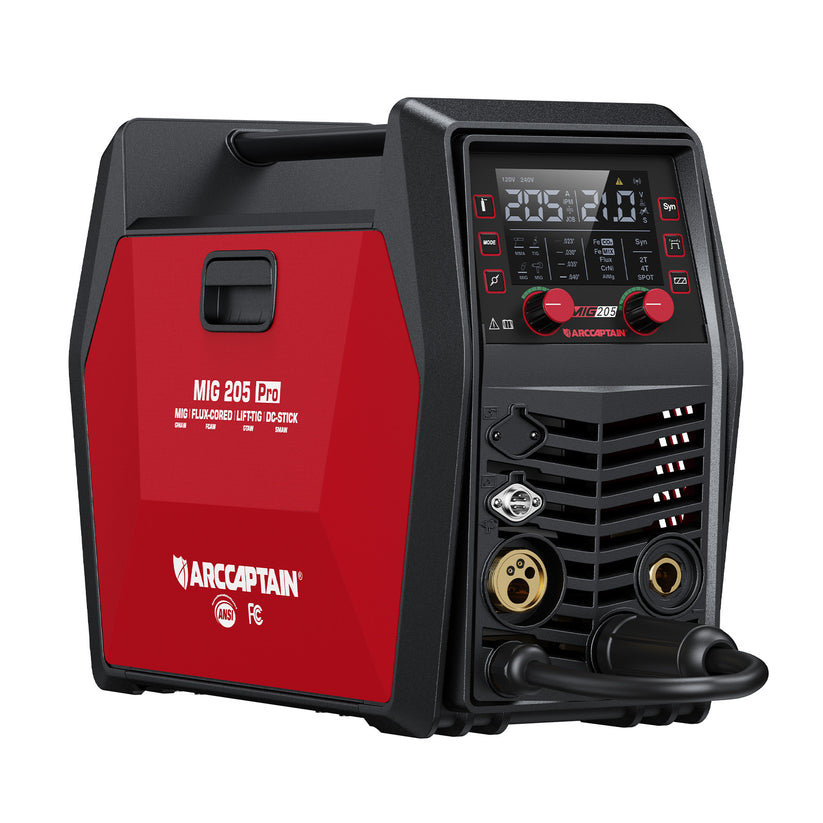
Arccaptain MIG205 Pro Gas MIG Welder Stainless Steel Multi Process Machine
$799.99 $499.99
See ProductFrequently Asked Questions
What are the five welding joints in structural welding?
The five basic joints used in structural welding are butt, corner, edge, lap, and tee joints. Each joint type is chosen based on how the metal pieces need to be connected and the load they must carry. For example, butt joints are common in beams, while tee joints are often used in columns and supports.
Which welding is strongest?
TIG (GTAW) welding generally produces the strongest and cleanest welds because of its precision and control. However, for heavy-duty construction, stick (SMAW) and flux-cored (FCAW) welding are considered the strongest and most reliable on structural steel. The “strongest” weld always depends on the material, design, and application.
What code is used for structural welding?
The most widely used code for structural welding is the AWS D1.1 Structural Steel Welding Code. It sets the standards for welding practices, materials, inspection, and safety in steel construction. Following this code ensures that welds meet strict structural and safety requirements.
Is MIG welding structural?
Yes, MIG (GMAW) welding can be used in structural welding, but it is more common in fabrication shops than on outdoor construction sites. MIG is valued for its speed and clean welds, making it ideal for assembling structural components before installation. For heavy-duty fieldwork, stick and flux-cored welding are still the top choices.

